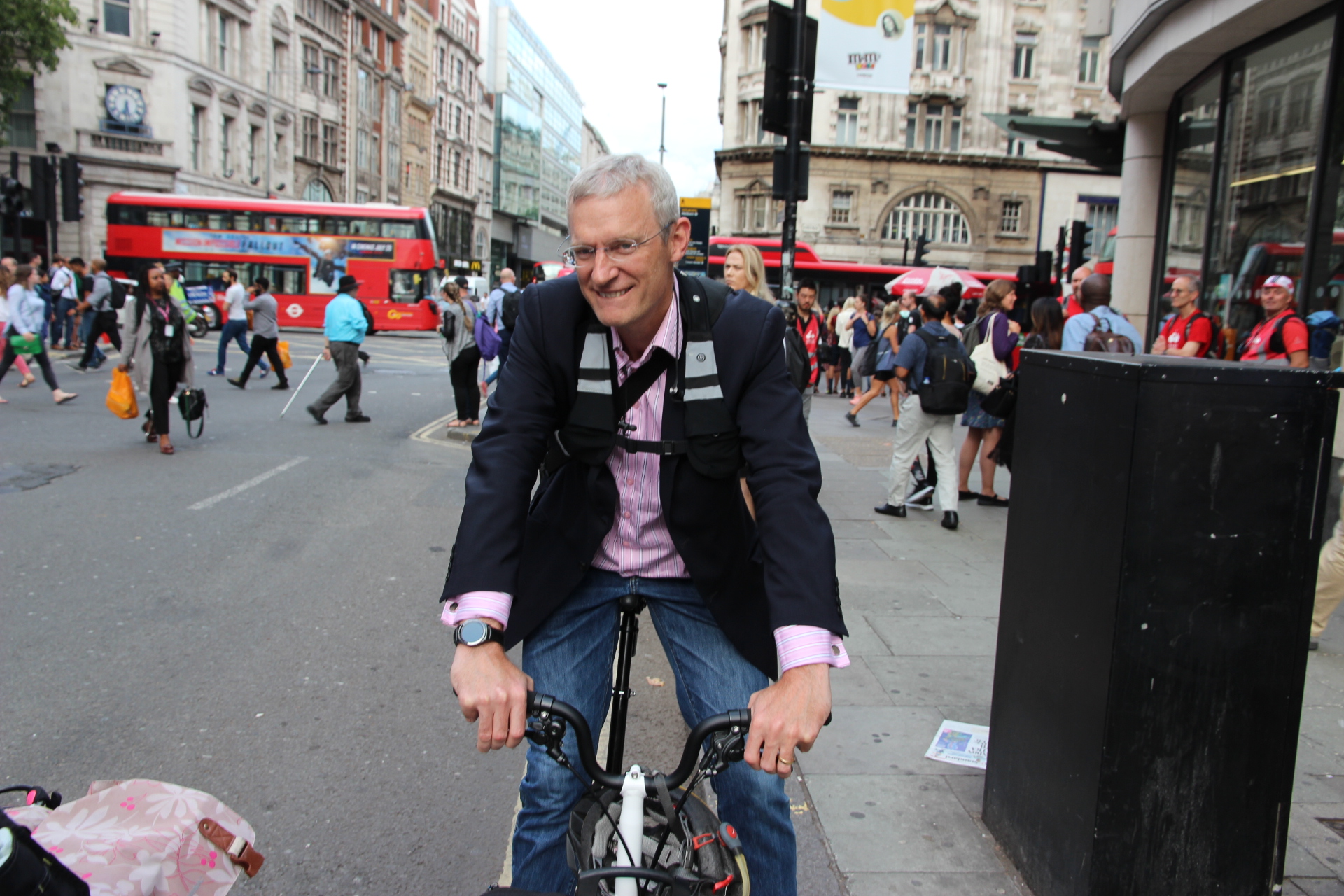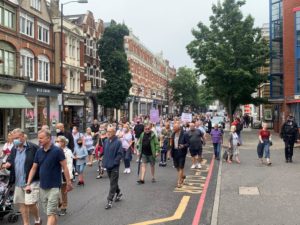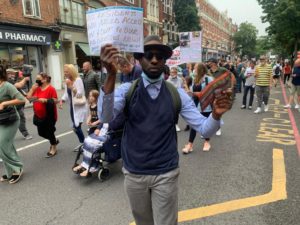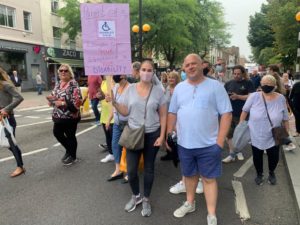BBC's Jeremy Vine praises council plans to close roads
Olympic gold medallist Chris Boardman criticised protesters who want Islington council to roll-back the scheme
Tuesday, 18th August 2020 — By Calum Fraser

Jeremy Vine
BBC presenter Jeremy Vine has praised council plans to cut traffic through residential streets following a fourth week of consecutive protests against the road closures.
Mr Vine, who has daily shows on BBC Radio 2 and Channel 5, also blamed Google Maps and Waze navigation apps for funneling cars away from main roads and down rat-runs.
His intervention comes after the largest protest so far against the Town Hall’s People Friendly Streets scheme, which could see a third of roads in Islington covered by new traffic restrictions, took place on Saturday.
Mr Vine told the Tribune: “Google maps and Waze have sent people shooting through our side streets. We have to get through traffic out of local neighbourhoods and a lot of these schemes seem to be brilliant at doing that.”

Protesters on Saturday
Several councils across the country have taken similar steps to Islington by either erecting bollards and no entry signs to close residential streets to motor traffic or installing cameras to penalise drivers.
Islington has seen one of the biggest backlashes to these Experimental Traffic Orders (ETOs) with protests held outside the town hall every week for the past month.
These orders allow the changes to be carried out without a formal consultation, something that has infuriated protesters. Feedback is taken while the measures are in place, and the ETOs expire after 18 months.
The council has committed to surveying opinion after 12 months to gauge whether people want the changes should be made permanent.

Olympic gold medallist and cycling campaigner Chris Boardman has also backed the council’s actions after seeing the Tribune’s video of Saturday’s protest on social media.
He said: “Right now we have a moral obligation to provide people who don’t have cars, a majority of households in Islington, with a means to travel safely whilst public transport is running at just 30 per cent of its capacity.
“The only viable alternative is walking and riding, which people will only do if they feel safe and that means reduced traffic and lower speeds where people need to travel. Not to give those people this option is unjustifiable.”
He added: “At the same time, these temporary measures give us all a chance to ‘try before we buy’ – to trial using our roads and streets for a few months in a different way, one that reduces pollution and noise and improves health.”
Nearly 70 per cent of Islington households do not own a car, according to the most recent council data.

Council leader Richard Watts has become a focal point of the protesters’ anger.
On Saturday they sang “get Richard out” during the march.
Referring to the next local government elections in two years’ time Cllr Watts, who has lead the Town Hall since 2013, responded on Twitter saying: “I welcome the contest. See you on the hustings in 2022”.
A Waze spokeswoman said: “Waze routes its users using only the public roads infrastructure, based on local driving laws and the road signs in the area.”
“By diverting traffic from the most congested bottlenecks in the city, Waze helps to reduce traffic across the city for all road users, and local citizens who do not use the app often still reap the benefits.
“Waze operates its Waze for Cities program, sharing free data with municipalities and transportation authorities, to empower their understanding of driving patterns in their domain.”
“The responsibility for determining the traffic flow of a city lies with local governments and departments of transportations. If a certain road’s status and limitations are updated, the change will reflect in the Waze map, usually within 24 hours of the update.”
Google have been approached for comment.